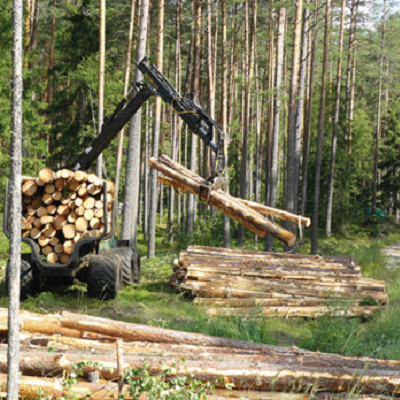Developing environmentally sustainable forestry value chains

Forests play a key role in climate regulation, water purification and biodiversity conservation, whilst providing renewable wood-based resources critical for the circular economy. Forest cover in the UK is one third of the European average, and possible post-Brexit reform of agricultural subsidies could create substantial impetus for forestry expansion. There remains an incomplete evidence base on the wider environmental consequences of such expansion in relation to methods of woodland establishment and management. There is also a need to more accurately account for carbon sequestration in harvested wood products, and to calculate environmental “credits” attributable to substitution of wood for high-impact products such as concrete and fossil fuels. These effects will arise over an extended time period for advanced value chains involving cascading uses of the primary wood feedstock, e.g. starting with construction and culminating in fuel use as wood pellets or bioethanol. This exciting studentship will develop state-of-the-art of life cycle assessment (LCA) models to integrate ecological data on forestry land management with techno-economic data on product processing and product substitution to answer the following questions:
- What are the environmental consequences of woodland establishment on marginal land, with particular emphasis on greenhouse gas fluxes, carbon sequestration, nutrient losses and biodiversity?
- How do environmental footprints of innovative wood-derived products compare with substituted conventional products?
In addressing these questions, the project will make a significant contribution to the ongoing scientific debate about “land sparing”, by quantifying life cycle GHG mitigation potential and possible environmental co-benefit of forestry expansion on land “spared” from agriculture.
The position will suit an enthusiastic and numerically literate PhD candidate willing to adapt advanced LCA modelling techniques to the forestry sector. The successful applicant will develop skills in data mining and LCA modelling. An industrial placement with Woodknowledge Wales will provide in-depth knowledge of innovative forestry value chains.
Applicants should hold a minimum of an Honours Degree at 2:1 level or equivalent in a science or engineering subject. Knowledge of woodland management, greenhouse gas accounting and/or life cycle assessment would be advantageous. Applicants should be willing to engage with a network of forestry stakeholders.
For further details, please contact Dr David Styles, d.styles@bangor.ac.uk or Professor John Healey, j.healey@bangor.ac.uk.
